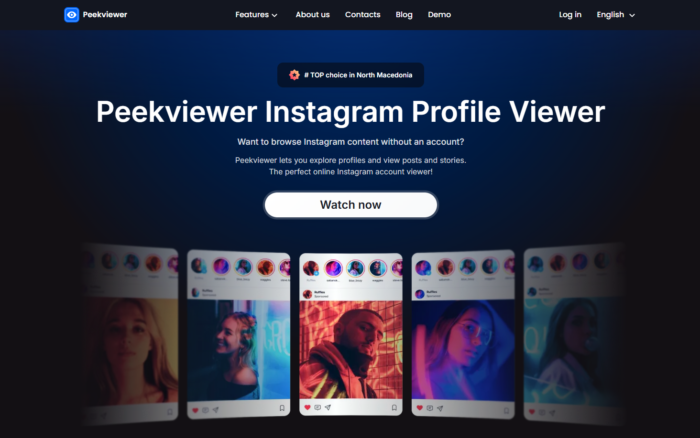Bluesky discovers that as they grow, they also experience challenges and difficulties, including dealing with bots.
Bluesky's expansion has brought challenges, as both human users and bots have joined the platform, some with malicious intent.

Ever since the recent U.S. presidential election, Bluesky has experienced a significant surge in its user base. This growth has been fueled by individuals seeking a safe haven from X, which many perceive as having a right-leaning bias due to its owner's support for President-elect Donald Trump.
Alternatively, people are also drawn to Bluesky as an alternative to Meta's Threads and their algorithm-driven experience. Bluesky's roots can be traced back to Twitter, where it was first championed by its former CEO, Jack Dorsey. The platform's decentralized approach to social networking was initially intended to replace Twitter's core mechanics.
However, with the recent parting of ways between the two companies, this goal seems unlikely. Nevertheless, Bluesky's impressive growth trajectory, with its user base more than doubling since October, has positioned it as a serious competitor to other social media platforms. But as with any rapid growth, there have been some challenges.
Bluesky has not only attracted human users, but also bots, including those designed to promote political division and link users to unreliable websites. This skyrocketing user base, now surpassing 25 million, is the biggest test yet for the relatively young platform, which has positioned itself as a social media alternative free from the issues plaguing its competitors. According to research firm Similarweb, Bluesky saw an increase of 7.6 million monthly active app users on iOS and Android in November, a whopping 295.4% jump from October.
It also recorded 56.2 million desktop and mobile web visits during the same period, a 189% increase from October. Besides the U.S. election, Bluesky also received a boost when X was temporarily banned in Brazil.
Laura Edelson, an assistant professor of computer science at Northeastern University and a member of Issue One's Council for Responsible Social Media, believes that Bluesky's recent spike in attention has led to an influx of spam on the platform. However, she acknowledges that as a smaller and newer platform, Bluesky may not have the resources or established team to handle these challenges as quickly as larger platforms. To manage its rapid growth with a small staff, Bluesky initially operated as an invitation-only space before opening to the public in February.
This approach allowed the platform to develop moderation tools and other unique features to attract new users, such as curated "starter packs" that provide lists of relevant feeds. Recently, Meta also announced that they are testing a similar feature. Compared to bigger players like Meta's platforms or X, Bluesky has a distinct set of values and priorities.
Claire Wardle, a professor at Cornell University and an expert in misinformation, believes that Bluesky's value system is "quite different," which includes giving users more control over their experience. In a blog post, Bluesky stated, "Our online experience doesn't have to depend on billionaires unilaterally making decisions over what we see. On an open social network like Bluesky, you can shape your experience for yourself." This mindset has attracted users who are tired of the issues present on larger platforms and seek a different type of social network.
However, as Wardle points out, when a platform gains a significant number of users, it becomes vulnerable to bots and disinformation campaigns that align with certain perspectives. Currently, there is limited data available to quantify the rise in bots, impersonator accounts, and harmful content on Bluesky. However, in recent weeks, users have reported a large number of apparent AI bots following them, sharing plagiarized articles, and making divisive comments in replies.
Lion Cassens, a Bluesky user and doctoral candidate in the Netherlands, discovered a network of German-language accounts with similar bios and AI-generated profile pictures posting in replies to three German newspapers. While the bots' messages have been relatively harmless so far, Cassens is concerned about their potential to mislead users in the future. There are also signs that foreign disinformation narratives have found their way to Bluesky.
The disinformation research group Alethea flagged a low-traffic post that shared a false claim about ABC News, which had previously circulated on Russian Telegram channels. Another challenge for Bluesky is copycat accounts. In November, Alexios Mantzarlis, director of the Security, Trust and Safety Initiative at Cornell Tech, found that 44% of the top 100 most followed named individuals on Bluesky had at least one duplicate account posing as them.
However, Bluesky has taken steps to address this issue, and as of two weeks later, had removed around two-thirds of the duplicate accounts initially detected. Earlier this month, Bluesky announced that it had quadrupled its moderation team in response to its growing user base. The company also introduced a new system to detect impersonation and is continuously working to improve its Community Guidelines to provide more detailed information about what is allowed on the platform.
Additionally, users have the option to subscribe to third-party "Labelers" that outsource content moderation by tagging accounts with warnings and context. Despite these efforts, Bluesky is at a "crossroads," according to Edward Perez, a board member at the nonpartisan nonprofit OSET Institute and former head of Twitter's civic integrity team. As Bluesky continues to grow, it will have to prioritize and mitigate potential threats if it hopes to maintain its success.
However, disinformation and bots are not the only challenges that Bluesky will face in the future. As a text-based social network, it may struggle to attract younger generations who prefer more visual-focused platforms like TikTok and Instagram. Additionally, the current political polarization may limit Bluesky's potential for growth, as the platform aims to provide a space for individuals with diverse viewpoints to connect and engage with one another.
As Claire Wardle notes, Bluesky is not trying to be "all things to all people." Instead, the platform is focused on its unique values and priorities, which may not align with the strategies of larger platforms like Facebook or Instagram. As social media platforms become increasingly divided along political lines, Bluesky's approach may be more appealing to users seeking a different type of online experience.










